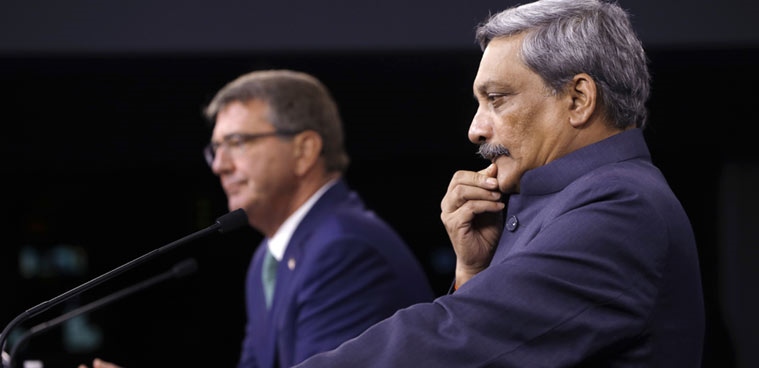India-US to advance defence cooperation?
July 15, 2017 | Expert Insights

The US House of Representatives has passed a $621 million defence policy bill proposing to advance defence cooperation between India and the US.
Background
India had an uneasy relationship with the US during the Cold War era. Over the years the bilateral ties between the two of the largest democracies in the world has significantly improved. An outline of the relationship can be found.
In the past much of US-India relationship was based on trade. In the recent years, there has been expansion in defence cooperation. According to Stockholm International Peace Research Institute (SIPRI), for the period between 2012 and 2016, the United States was the second largest supplier of all arms imported by India. It was only surpassed by Russia.
Since 1992, India and the US have been also conducting the Malabar Naval Exercise in the Bay of Bengal. India had twice participated with a ship in biennial rim-of-the-pacific exercise in 2014 and 2016 hosted by the US Pacific Command.
In 2016 India and the United States signed a logistics pact called the Logistics Exchange Memorandum of Agreement (LEMOA). Pentagon credited former US Defence Secretary, Ashton Carter for the improved defence relations. In recent years US and India have engaged with what Carter has called a “strategic handshake” between the two countries.
Analysis
The current amendment was introduced as part of the National Defense Authorisation Act (NDAA) 2018. It requires the US Secretary of Defence and the Secretary of the State to come up with a strategy that will further strengthen defence cooperation between the two nations. The amendment was introduced by Indian-American Congressman Ami Bera, who said, “I am grateful this amendment [is] passed and look forward to the Defence Department’s strategy that addresses critical issues like common security challenges, the role of partners and allies, and areas for collaboration in science and technology.”
The US Senate will now have to pass the NDAA, after which the country’s President, Donald Trump would sign it into law.
Assessment
Our assessment is that increased military interoperability between US and India armies will be mutually beneficial. However, it is important to extend the collaborations areas vital to our national security including food security, health care, energy, education and water security. India is one of the largest buyers of military equipment in the world.








Comments